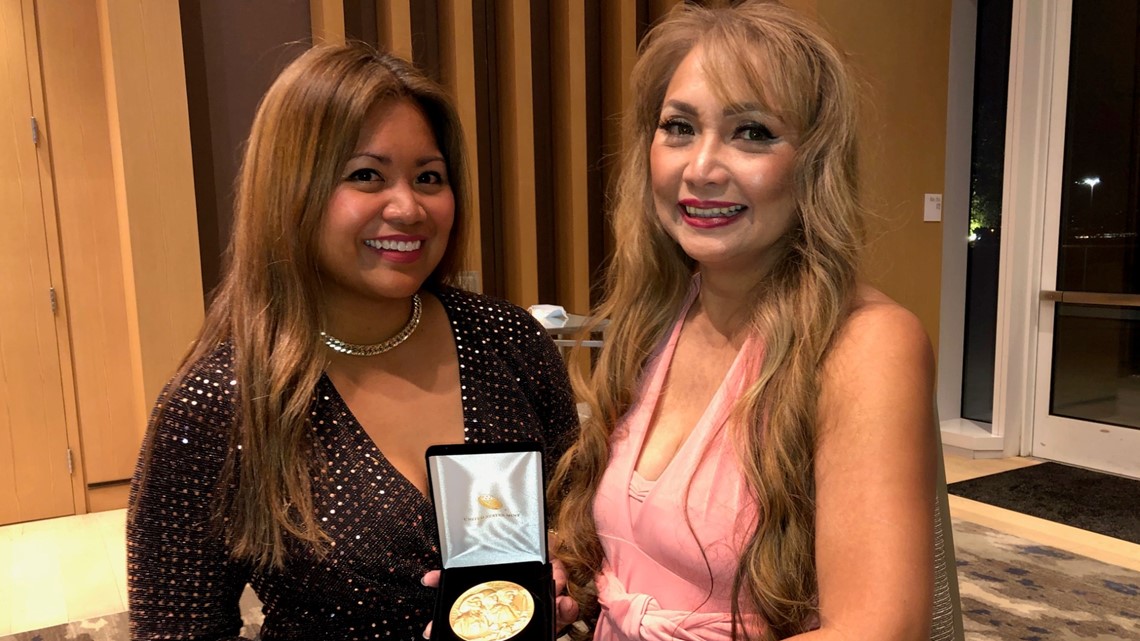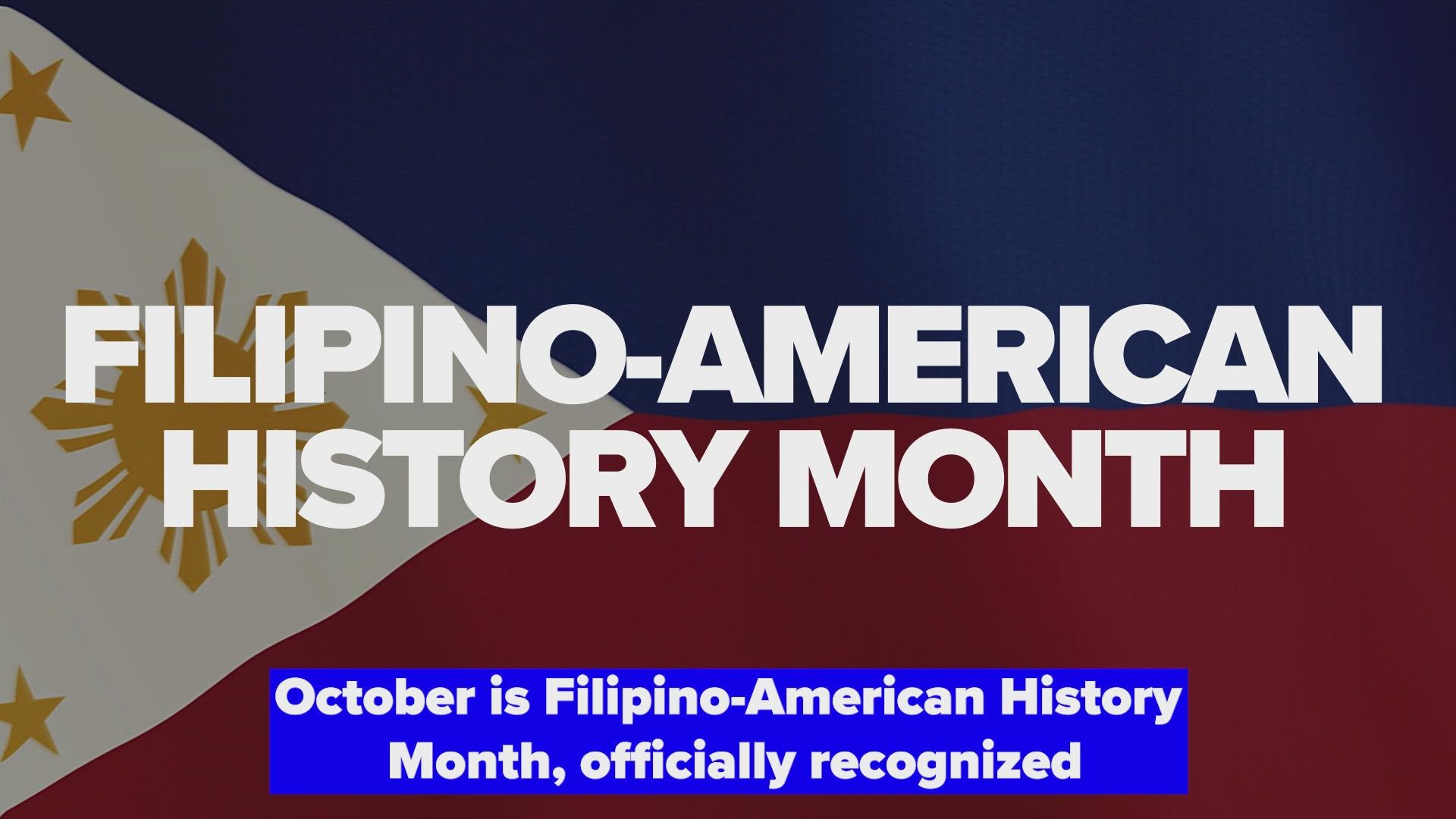OXON HILL, Md. — For the 89th time, families and supporters gathered to honor Filipino veterans who never received recognition nor benefits for their crucial role in World War II.
The Filipino Veterans Recognition and Education Project held a Congressional Gold Medal Award Ceremony at MGM National Harbor on Sunday for 19 more recipients: One living veteran and 18 next of kin.
While some families received the award virtually, the rest showed up in person including Pearl Cruz who traveled from Florida. Her father Antonio Cruz was already an active military member in the Philippines when Japan bombed Pearl Harbor. He was called to help defend the Philippines and the U.S. alongside 260,000 Filipino soldiers.
Antonio Cruz, who died in 2003, was a survivor of the Bataan Death March and an incarcerated prisoner of war at a Japanese military concentration camp. His family described the award as a long-awaited gift he would have humbly accepted.
“I’m pretty sure there was no bitterness,” Pearl Cruz told WUSA9. “We’re very proud because he has a legacy. It’s amazing and we’re very touched. It’s Filipino pride, too, with the U.S. recognizing it.”


It took 75 years before the U.S. government acknowledged their contribution by awarding 600 veterans and families with Congressional Gold Medals on Capitol Hill in October 2017, almost one year after the Filipino Veterans of WWII Congressional Gold Medal Act of 2015 became law.
Volunteer-based organization FilVetREP worked to not only increase public education but help obtain national recognition of the Filipino-American WWII soldiers for their service to the U.S. and the Philippines from 1941 to 1946.
“This is one way of creating greater awareness about a story we just untold,” FilVetREP Executive Secretary Jon Melegrito said. “We will continue to have these ceremonies until every veteran is given the Congressional Gold Medal Award.”
Since 2017, about 3,000 living veterans and families have received replica medals at no cost from FilVetREP. However, the group said there are still more than 10,000 living veterans across the country who have yet to receive the same recognition.
Filipino troops were initially promised they would be treated with the same status and benefits, including a path to citizenship, as their American counterparts. The Philippines, an American colony then, already had military bases.
However, after seven months of battle under extreme conditions, 75,000 U.S. and Filipino soldiers surrendered to Japanese forces. They were stripped of food, water and medical attention, and were forced to march 65 miles to confinement camps. The event in 1942 was the largest U.S. surrender.
Instead of fulfilling what was expected, the U.S. government passed the Rescission Acts of 1947, which revoked the nationality status of Filipino soldiers and their promised compensation.
FilVetREP has launched an online interactive educational program to keep the legacy of the veterans alive. There is an online exhibition and curriculum for public schools to utilize in their lessons.
“History of our veterans has been erased,” Melegrito added. “The next generation, this will ensure that they will know the stories of their grandparents and the service they provided.”

